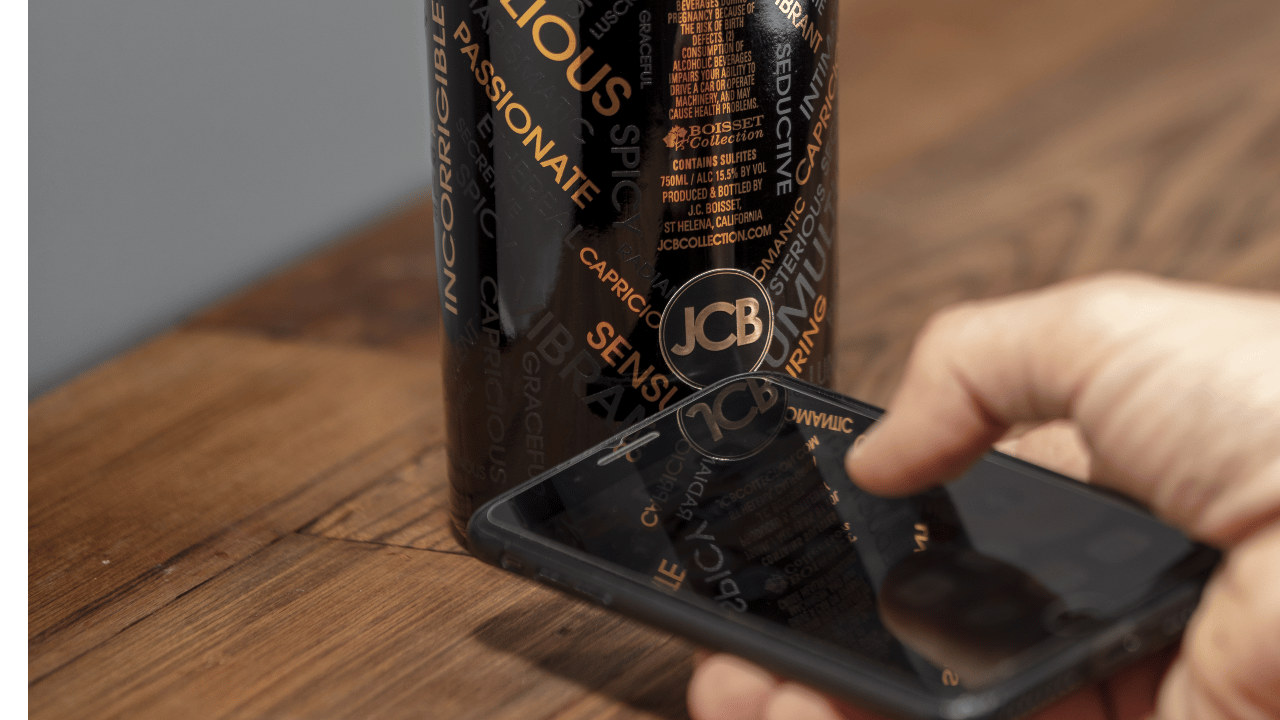Packaging
Story
Smart labels ensure transparency
By Chloe Alverson
Intelligent labels benefit manufacturers, consumers
(Image courtesy of Getty Images)
In the 2009 romantic comedy “500 Days of Summer,” Joseph Gordon-Levitt’s character, Tom Hansen, takes interest in his quirky new coworker, Summer Finn (played by Zooey Deschanel). Summer tells Tom upfront that she is not looking for a serious relationship, but he falls in love with her anyway. When Summer eventually breaks things off between them, Tom is devastated despite having never put an official label on their relationship.
Although not all relationships require labels, labels can ensure that everyone is on the same page.
When it comes to the beverage industry, smart labels’ ability to ensure traceability have made them a popular solution.
Pedro Garza, market development manager for RFID Food at Avery Dennison Smartrac, Mentor, Ohio, notes that research shows that consumers are inclined to spend more on products that show where ingredients come from.
“Smart labels can provide this transparency and provide consumers with new ways to engage with the product, such as via videos or the opportunity to enter competitions via their smartphones,” Garza says.
Similarly, a report from Mordor Intelligence titled “Smart Label Market – Growth, Trends, COVID-19 Impact, and Forecasts (2023-2028)” notes that there is a heightened interest for safe and traceable food on eCommerce platforms. The report mentions an IBM study that found that 71% of consumers were willing to pay “an additional average premium of 37% for companies providing full transparency and traceability.”

Product safety measures have also contributed for the demand of smart labels from beverage-makers. (Image courtesy of Avery Dennison)
Additionally, the report states that smart labels are able to withstand harsh climatic conditions during shipping, storage and point-of-use.
QR codes on labels can offer beverage-makers with an array of opportunities. Garza notes that their ease of use and commonality resonate with consumers.
“When combined with a connected product cloud, they can help beverage-makers track, manage and store all of the events associated with an individual product across its lifecycle,” he says. “This end-to-end connectivity can help brands tell the story of the origins or carbon footprint impact of their products, thereby enriching the ways a customer experiences them.”
Smart labels’ product safety measures also contribute to demand from beverage-makers. Garza suggests that brand protection “is a key driver,” especially when the product is consumable.
“The attention to authenticating the product directly correlates to a much-needed safeguard on overall well-being of the consumers,” he says. “Embedding an NFC tag behind the label provides an opportunity for a seamless interaction, with no line-of-sight required to provide assurance to the consumers. This creates higher levels of brand protection and increases the lifetime value of the consumers to the brands.”
He adds that, when each beverage is assigned a unique digital identity, it’s easier to trace in the event that a product is recalled.
Augmented reality (AR) and virtual reality (VR) also can be utilized with smart labels, which Garza says is “exciting” for both brands and consumers.
“A great example is 19 Crimes ‘Living Wine Labels’ featuring a holographic visit from entertainment icon Snoop Dogg,” he explains. “Beyond the marketing and sales opportunities, the merging of these technologies can provide interactive product information to help customers make informed choices, help brands enhance their loyalty programs, which ultimately boost customer retention. The fusion of smart and intelligent labels with AR/VR will ultimately provide richer customer experiences and transform the way we experience beverages.”
According to the Mordor Intelligence report, smart labels are “playing a vital role in the marketing and advertising of consumer products.” The labels can provide product information, as well as analyze consumer-buying patterns, it notes.
“Cost-cutting over the supply chain, to be closer to the nearest level of efficiency, by manufacturers, has been a critical factor that has augmented the demand and prompted the proactive adoption of these solutions to gain the first-mover advantage in the individual end-user industry,” the report states.
Near field communication (NFC) is another technology that can be used in conjunction with smart labels, Garza notes.
“NFC is favored for brands wanting to enable consumer interaction on a one-to-one basis with their products, using their smartphone as an example,” he says. “The technology is now enabled in nearly every smartphone, and consumers are increasingly using it for contactless payments. Widening NFC to other uses — ‘tap to learn more’ — is just a matter of time.”
“The fusion of smart and intelligent labels with AR/VR will ultimately provide richer customer experiences and transform the way we experience beverages.”
— Pedro Garza, Market Development Manager, RFID Food, Avery Dennison Smartrac
As for radio frequency identification (RFID), Garza says that, because it’s a one-to-many form of technology, retailers and brands can use it to “quickly capture hundreds of items in a matter of seconds.” This allows for increased inventory visibility, he adds, which can be digitized and used to optimize omnichannel shopping.
“This can help brands and retailers achieve 99% inventory accuracy, drive labor reduction, minimize out-of-stocks and, thereby, boost sales,” Garza explains.
When looking ahead at what’s next for smart labeling technology within the beverage market, Garza notes that there has been an increased adaption to the technology “as a means of pre-sales consumer interaction, tap-to-pay technologies and post-sale engagements.”
Post-sale engagements might include instructions, future incentives or coupons, customer loyalty programs, as well as brand protection with authentication, Garza says. An additional trend is using RFID for grab-and-go or walk out shopping experiences, he notes.
“The future of smart labeling technologies is an exciting one, which now opens the door for limitless applications,” Garza adds. “The beverage market is headed toward an exciting era of more data points, smarter consumers who have sustainability at the top-of-mind, and providing them with products that are best-fit to support these initiatives providing a circular economy — which, in turn, will accelerate more adoption of technologies such as NFC.” BI

May 2023 | bevindustry.com